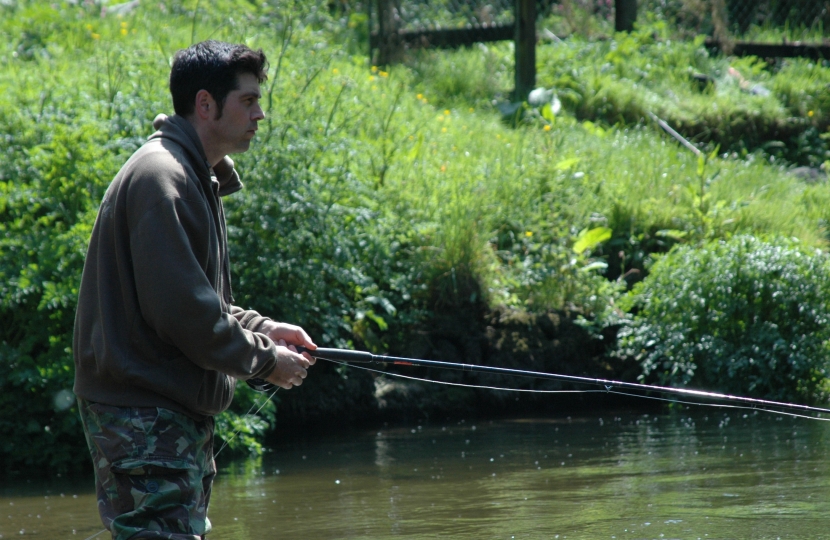
Scott Mann has led his first backbench debate in the House of Commons to highlight the unfairness of the current bass measures on recreational sea anglers.
The debate was entitled: "Conservation of sea bass and the effect of related EU measures on the UK recreational fishing industry.”
Scott moved the motion which was agreed without dissent:
“That this House believes that the recent EU restrictions on recreational sea bass fishing are unfair and fail to address the real threat to the future viability of UK sea bass stocks; and calls on the Government to make representations within the Council of the EU on the reconsideration of the imposition of those restrictions.”
The Angling Trust and supporters including Scott have been calling for revised measures that reduce bass mortality by restricting rather than increasing harmful commercial harvesting methods such as gill netting, and instead promote sustainable methods such as hook and line fishing for both the commercial and recreational sectors.
Thousands of anglers are subsequently at risk of criminalisation if they try to keep the self-same bass that a netsman is free to kill during the January to June moratorium.
Introducing his debate, Scott said:
"I lead this debate on sea bass conservation not just as an MP, but as an angler.
"I see recreational sea anglers and fishermen as part of a collective community. Both need healthy fish stocks. Both activities benefit the economy in different ways and in differing amounts and both have the same passion for catching fish. The current situation we find ourselves in is grossly unfair on anglers. Both fishermen and anglers want to see bass stocks preserved and grown, but one party shouldn’t have to suffer when they actually have very little impact on stocks
"We need to have a different approach to this, and I hope my debate will highlight to the government why change is needed. It's only fitting that the source of these qualms for anglers is at the root of problems for fishermen on a wider scale too - the EU."
After the debate, Scott said:
"The reaction I’ve had to securing this debate is amazing. Within hours I was getting emails from anglers around the country expressing their thanks and showing their support, and I'm honoured to be fighting for the angling community."
Other MPs were also in favour of calls by the Angling Trust and the Bass Anglers' Sportfishing Society (BASS) for bass to be managed primarily as a recreational species alongside a sustainable hook and line commercial fishery. Newly elected MPs also highlighted the importance of recreational fishing to local economies and raised concerns about exemptions for gill netters.
Replying for the government, environment minister Rory Stewart said that DEFRA may have to revisit commercial catch limits next year in order to comply with scientific advice. He also repeated the government's offer to work with recreational angling organisations on a long term management plan for bass which builds on the lessons of the recovery of the striped bass fishery in the USA where a greater proportion of the stock is reserved for recreational fishing.
Martin Salter, Angling Trust's National Campaigns chief, said:
"The Angling Trust has put a huge amount of effort into getting this debate and briefing MPs so that they understand the genuine anger and frustration of recreational sea anglers at the appalling way they were treated last year by the EU fisheries ministers.
"We welcome the commitment from Rory Stewart on behalf of the government to revisit the commercial catch limits and to work with the recreational sector on a long term plan for bass, learning the lessons of proper professional fishery management from places like Ireland and the USA."
Nigel Horsman, from BASS, added:
"It was an excellent debate and really heartening to see so many MPs making the case for bass to be managed recreationally - a cause that we have been espousing for more than 20 years. The government now need to follow up their warm words with some practical action to rebuild bass stocks and properly recognise the economic value of recreational fishing."
